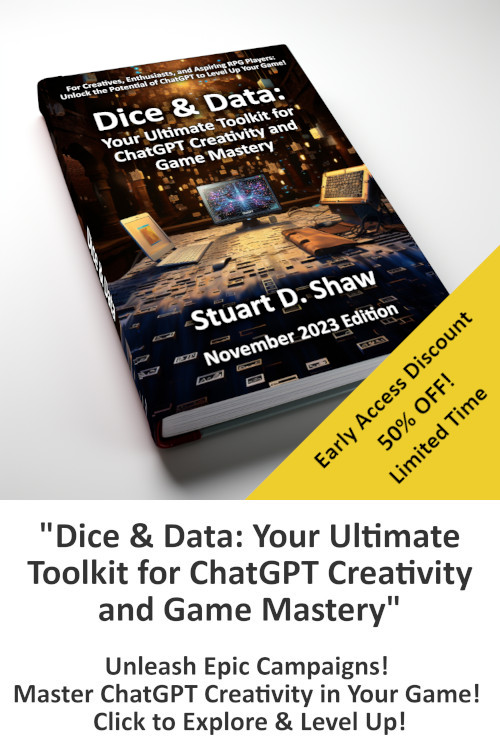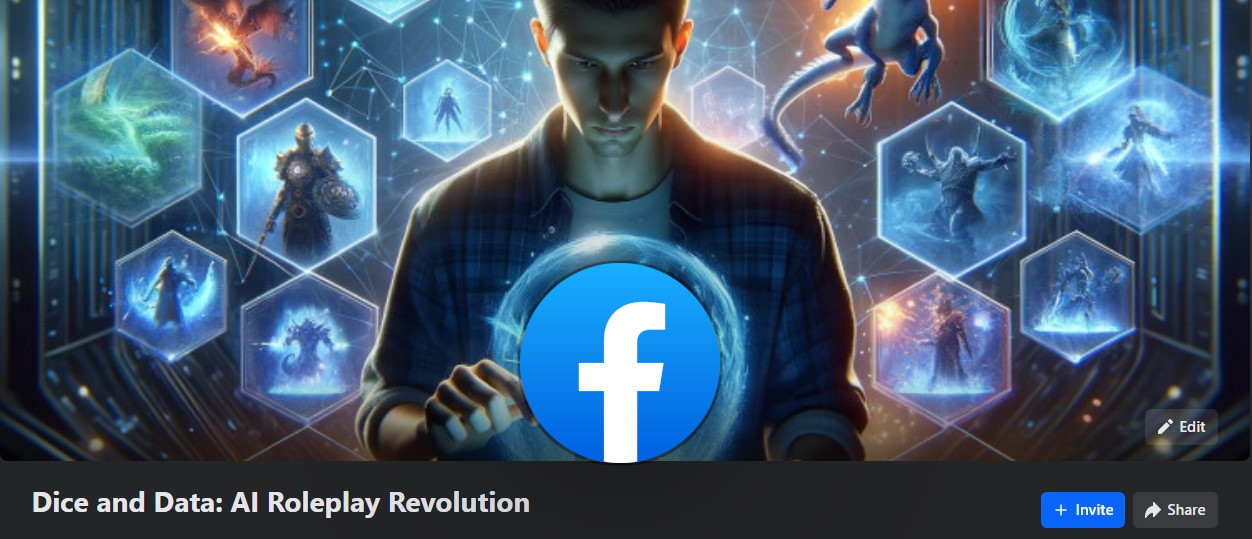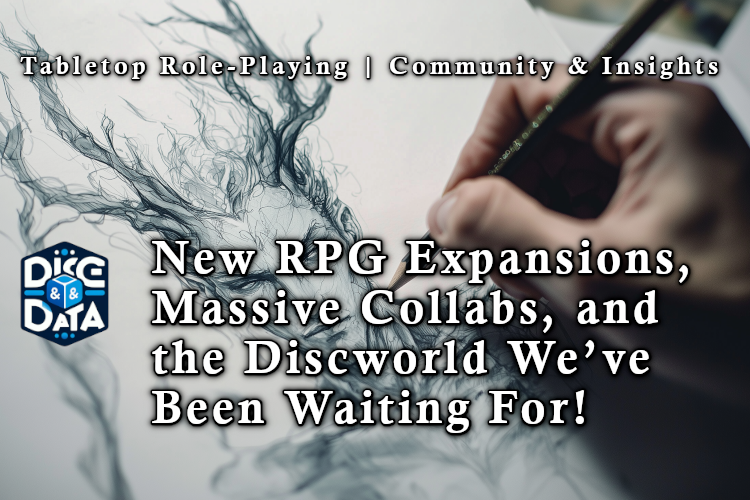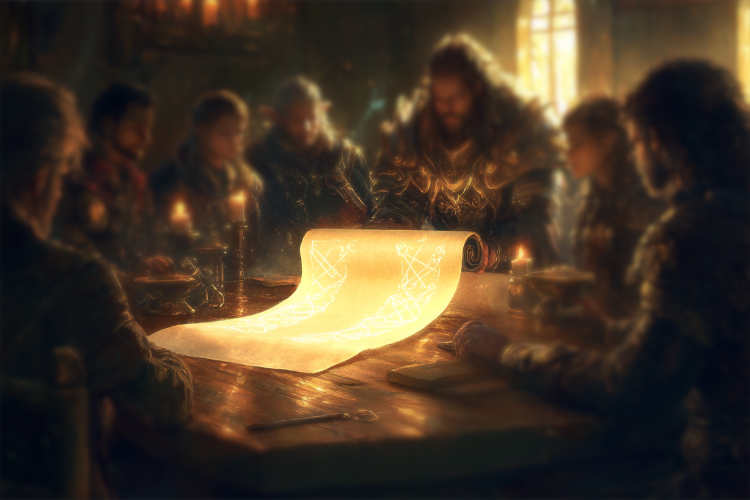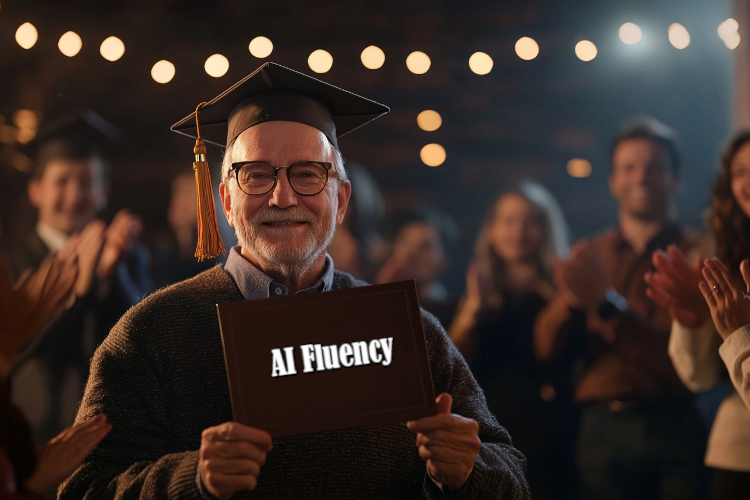
- Home
- RPG AI Blog
- AI Fluency in TTRPGs
AI Fluency in the TTRPG World (Or Lack Thereof)
I recently completed a micro-credential course on AI Fluency with Deloitte and the University of Sydney that delved deep into AI’s capabilities, exploring how this technology can reshape industries in cautious but exciting ways. The course was both enlightening and relevant—not just for my professional life but for my greatest passion: tabletop role-playing games (TTRPGs).
However, it made one thing abundantly clear: Australia is behind in AI fluency and adoption, and there’s a similar gap within the TTRPG community. There’s a lot of resistance—most of it based on misunderstanding—and, frankly, a fair amount of willful ignorance about what AI is and what it isn’t.
Misinformation and the Quagmire of Vitriolic Nonsense
One of the biggest barriers to adopting AI in the TTRPG space is the sheer amount of misinformation. The same myths get repeated over and over, and eventually, they become accepted as truth. It’s like a bad game of telephone, where a simple misunderstanding snowballs into a full-blown conspiracy.
The course I took tackled these myths head-on, particularly the idea that AI will somehow "steal" jobs, "steal" art, or reduce the human element in creative fields. AI can create content, but it cannot truly create meaning. It can generate ideas, but it cannot spark passion. And in the TTRPG space, that human connection is what makes the experience so powerful.
Yet, as long as we’re stuck in the quagmire of vitriolic ignorance, we can’t have a real conversation about AI’s potential. As long as people are shouting about AI "stealing" or "ruining" creativity, we won’t be able to discuss how AI can genuinely enhance the TTRPG experience.
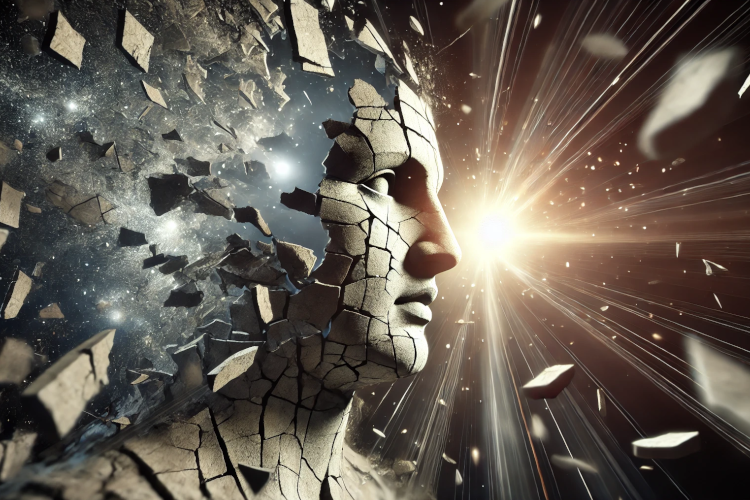
Breaking the Myth of AI "Stealing" Content
One of the most pervasive myths the course dispelled was this idea that AI somehow "steals" content. Let me set the record straight: AI does not steal. When an AI is trained on data—be it images, text, or anything else—it no longer references that source after the training process is complete. The idea that AI is continually reaching back and pulling from the original data it was trained on is simply incorrect. Think of it like teaching someone how to cook. Once they've learned the recipe, they don't have to keep calling their teacher to ask for instructions every time they make the dish. The knowledge stays with them, and they can create meals without directly copying the original recipe.
Yet, in the TTRPG world, this misunderstanding is rampant. I constantly hear claims that AI-generated content is "stealing" from artists or creators. But let’s be clear—stealing implies depriving someone of their property. If AI uses an image in its training, that image is still very much the property of the original artist. Nothing has been taken from them, nothing has been stolen. The misunderstanding stems from a lack of AI fluency, and this, more than anything, is what’s holding back meaningful conversation about AI in TTRPGs.
AI in TTRPGs: Creativity Amplified, Not Replaced
Here’s where we hit a significant misconception in the TTRPG community: people fear that AI will somehow replace Dungeon Masters or eliminate the need for human creativity. This simply isn’t true. AI is a tool, not a substitute for imagination. It can help Dungeon Masters create scenarios, generate NPCs, generatate images for gameplay, or even write backstories—but it cannot replace the heart and soul that a human brings to the game.
In fact, the course provided an excellent analogy about AI in programming. AI can write code quickly—much faster than a human—but that doesn’t mean the code is flawless. In many cases, debugging that code can take just as long as if a human had written it from scratch. So, while AI might make certain tasks more efficient, it doesn’t necessarily reduce the workload. In the TTRPG world, AI can speed up content generation, but it still requires a human touch to refine, curate, and implement that content in a way that feels authentic and engaging.
This is why I get so frustrated when I hear people say that AI is going to "ruin" TTRPGs. The truth is, AI isn’t going to ruin anything—unless we let it. AI, when used correctly, can open up new creative possibilities and give Dungeon Masters the tools they need to run even more engaging and complex campaigns. It’s not about replacement—it’s about enhancement.
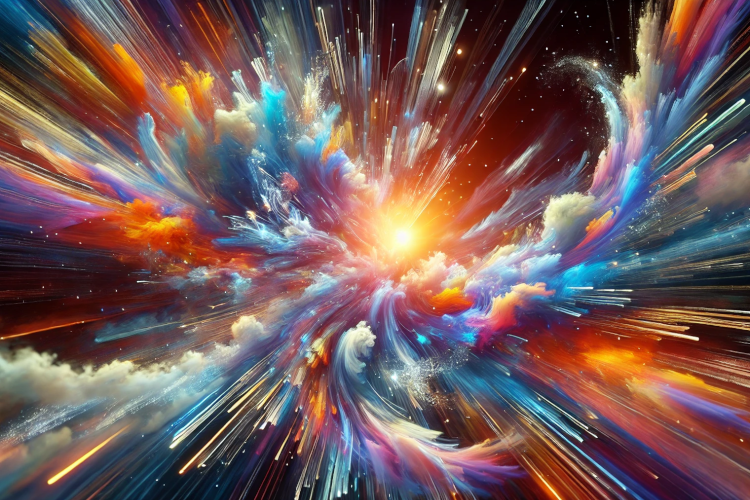
A Call for Balance: Innovation Meets Tradition
So, what’s the real conversation we should be having? It’s not about whether AI is going to take over TTRPGs or eliminate human creativity. It’s about how we can balance innovation with tradition. AI offers us new tools, new ways of creating, and new possibilities for the games we love. But it’s up to us to make sure those tools are used to complement—rather than replace—the human element of role-playing games.
This is the conversation we should be having: how do we use AI to uplift the human experience, to enhance creativity, and to expand the worlds we create in TTRPGs? That’s the future I want to see—one where AI and human creativity work hand in hand to build something truly magical.
Until then, we need to cut through the noise of misinformation, push back against the ignorance, and start having the real discussions. AI is not the enemy of creativity—it’s a tool to amplify it. But only if we let it.

Written by Stuart Shaw, a 40-year veteran of tabletop role-playing games. His journey started with Dungeons & Dragons in 1983, and he is the author of "Dice and Data: Your Ultimate Toolkit for ChatGPT Creativity and Game Mastery". Stuart is eager to share his passion and expertise with the world and enjoys writing about news and innovations in the RPG world. Join him on an exciting adventure into the world of TTRPGs. About me.
